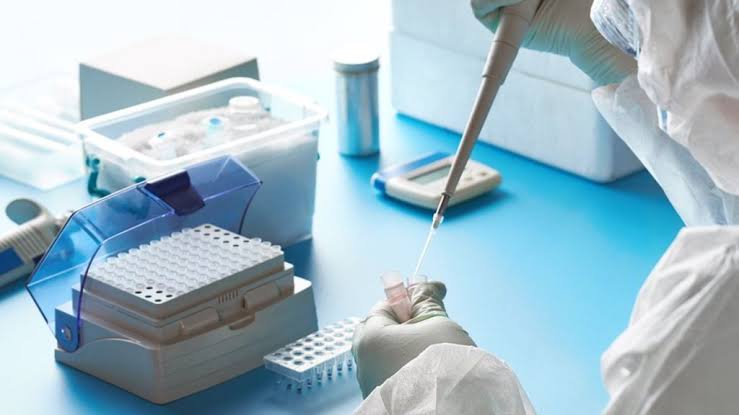New York: US-based Pfizer Inc and German biotech firm BioNTech SE have shared additional Phase 1 safety and immunogenicity data from their ongoing U.S. study of the BNT162 mRNA-based vaccine program against SARS-CoV-2, which has advanced into Phase 2/3 evaluation.
The newly released data describes key safety and immunogenicity data from the U.S. Phase 1 trial for the BNT162b2 vaccine candidate, which at 30ug recorded 7 days after the second dose elicited SARS-CoV-2-neutralizing geometric mean titers (GMTs) in younger adults (18-55 years of age) that were 3.8 times the GMT of a panel of 38 sera of SARS-CoV2 convalescent patients, and in older adults (65-85 years of age) the vaccine candidate elicited a neutralizing GMT 1.6 times the GMT of the same panel, demonstrating strong immunogenicity in younger and older adults.
Further, across all populations, BNT162b2 administration was well tolerated with mild to moderate fever in fewer than 20% of the participants.
As previously announced, these data informed the companies’ decision to advance a 2-dose regimen of the 30µg dose level of BNT162b2, which encodes an optimized SARS-CoV-2 full-length spike glycoprotein (S), into a Phase 2/3 evaluation.
The companies are continuing to analyze data from the Phase 1 trials in the U.S. and Germany. T cell immune responses elicited by BNT162b2 are being evaluated in the German study and the companies expect to submit the data for peer review and potential publication.
The companies previously announced that BNT162b2-vaccinated human participants displayed a favorable breadth of epitopes recognized in T cell responses specific to the SARS-CoV-2 spike antigen, as compared to the BNT162b1 candidate, and that BNT162b2 demonstrated concurrent induction of high magnitude CD4+ and CD8+ T cell responses against the receptor binding domain (RBD) and against the remainder of the spike glycoprotein that is not contained in the BNT162b1 vaccine candidate.
The additional data from the ongoing U.S. Phase 1 randomized, placebo-controlled, observer-blinded study was utilized to evaluate the safety and immunogenicity of varying dose levels of BNT162b1 and BNT162b2 in 195 participants randomized into 13 groups of 15 participants (per group, 12 received the vaccine and 3 the placebo). Groups of participants 18 to 55 years of age and 65 to 85 years of age received 10μg, 20μg, or 30μg dose levels of BNT162b1 or BNT162b2 on a 2-dose schedule, 21 days apart.
In both younger and older adults, BNT162b1 and BNT162b2 elicited similar dose-dependent SARS-CoV-2–neutralizing antibody GMTs, which were substantially elevated after the second dose, showing clear benefit of a 2-dose regimen. Although both vaccine candidates elicited lower antigen-binding IgG (Immunoglobulin G) and neutralizing responses in older adults (65 to 85 years of age), compared to younger adults (18 to 55 years of age), the neutralizing antibody GMTs measured 7 days after Dose 2 of 30μg of BNT162b1 or BNT162b2 in participants 65 to 85 years old were comparable to or higher than the GMT of a panel of SARS-CoV-2 convalescent sera from 38 patients (18 to 83 years of age) who had contracted SARS-CoV-2.
Participants 18 to 55 years old who received 10μg, 20μg, or 30μg of BNT162b1 reported mild to moderate local reactions, primarily pain at the injection site, within 7 days after an injection which were more frequent after Dose 2. In participants 65 to 85 years old, BNT162b1 elicited similar, but milder, local reactions, with mild to moderate injection site pain reported by 92% after Dose 1 and 75% after Dose 2. A similar pattern was observed after vaccination with BNT162b2. No older adult who received BNT162b2 reported redness or swelling. No participant who received either vaccine candidate reported a Grade 4 local reaction.
Systemic events after administration of BNT162b2 were milder than those with BNT162b1. Overall, after Dose 1, systemic events reported by participants 65 to 85 years old who received BNT162b2 were similar to those reported by those who received placebo. After Dose 2 of 30μg BNT162b2, only 17% of participants 18 to 55 years old and 8% of participants 65 to 85 years old reported fever (≥38.0 to 38.9 °C), compared to 75% of 18 to 55 year old participants and 33% of 65 to 85 year old participants administered a second dose of 30μg of BNT162b1. Severe systemic events (fatigue, headache, chills, muscle pain, and joint pain) were reported in small numbers of younger BNT162b2 recipients and were transient and manageable. No severe systemic events were reported by older BNT162b2 recipients. There were no reports of Grade 4 systemic events by any BNT162 recipient.
The totality of data contributed to the decision by Pfizer and BioNTech to commence the global (except for China) Phase 2/3 safety and efficacy portion of the clinical study to evaluate BNT162b2 against COVID-19. The study is now actively enrolling in the U.S., Argentina and Brazil. Additional enrollment is planned in Germany, Turkey and South Africa. The study is an event-driven trial that is planned to enroll up to 30,000 participants between 18 and 85 years of age. The Phase 2/3 trial enrollment to date has exceeded 11,000 participants with a second dose underway.


Comments are closed.